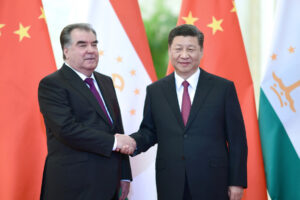Labour, industrial relations and employment creation minister Utoni Nujoma says the ministry has submitted a proposal for the long-awaited national minimum wage (NMW) of N$18 per hour to the Labour Advisory Council.
Speaking at the Namibian Food and Allied Workers Union’s (Nafau) 11th elective congress at Rietfontein on Friday, Nujoma expressed optimism about completing the necessary consultative and Cabinet processes to implement the national minimum wage by the first quarter of 2024.
“I note that the NMW is not a substitute for collective bargaining. It will benefit low-paid workers, particularly the unorganised. The wages and benefits that the unions can negotiate for their members are expected to exceed these minimums,” he said.
Currently, different sectors are paying between N$5 and N$23 for unskilled and semi-skilled workers.
Nujoma unveiled a number of proposals aimed at reshaping the country’s labour landscape.
He announced that Namibia has been accepted as a pathfinder country in the United Nations Global Accelerator of Jobs and Social Protection (UNGAJSP) programme.
The initiative is spearheaded by a government troika, in collaboration with trade unions and employers, to adopt a holistic approach aimed at addressing youth unemployment and enhancing social protection through impactful programmes.
Nujoma said the UNGAJSP will include a comprehensive programme on the transition from school to work.
Other proposals included the establishment of the Social Security National Pension Fund, amendments to the Labour Act of 2007, upcoming changes to the Social Security Act, the Employee Compensation Act and the Affirmative Action Act.
Nujoma said the tripartite task force on Amendments to the Labour Act will soon meet in its last session to finalise these proposals.
“We plan to table the amendments in the first half of 2024.”
Nujoma outlined plans for the development of a National Unemployment Fund, integration of informal economy strategies and the introduction of a comprehensive occupational safety and health bill.
This work, according to Nujoma, has started at the Social Security Commission and will be part of the Global Accelerator process.
Nujoma underscored the government’s commitment to supporting trade unions.
“Our ministry is hard at work on many fronts, but we also want to render more concrete support to the trade unions, especially in the areas of capacity building, collective bargaining and the promotion of trade unionism,” he said.
CONCERNS AND EXPECTATIONS FROM UNION LEADERS
Metal and Allied Namibian Workers Union general secretary Justina Jonas expressed concern about the manner in which the labour ministry is handling labour matters.
According to her, the workers’ expectations to see the realisation of amendments expected to be done on the Labour Act are very high.
“However, this process has been going on for more than five years without implementation. The establishment of the NMW created momentum in the labour movement, but the bureaucracy process to realise this dream is one thing. We need action. Workers need to feel protected by the laws aimed to protect them,” she said.
The Office of the Labour Commissioner urgently needs to be capacitated to ensure that justice is served to vulnerable workers, she said.
“Our monthly reports from regions are terrible regarding this office. Cases are delayed, individual officials are biased against workers, the majority of these officials are anti-unions. Trade unions, in the eyes of these officials, are just troublemakers,” she said.
Revolutionary Union interim leader Natangwe Julius expressed positive sentiments on the proposed changes, but raised concern on various aspects. He welcomed amendments to the outdated Labour Act 11 of 2007, emphasising that the current legislation favours capitalists, employers and investors over the rights of workers.
Julius pointed to the limitations faced by the acting commissioner Kyllikki Sihlahla due to the existing Labour Act.
He stressed the need for amendments that would empower the commissioner with more autonomy and authority to address disputes effectively.
“She’s trying but is clearly limited by the Labour Act. And we hope that those amendments are going to give her some power, as well as the union. For the unions, we are challenged by the 90-days issue when a union has lost a majority. Why would it need 90 days to regain its majority back?”
Julius also sought clarification on the minimum wage and the formalisation of informal traders. He questioned how the government would ensure that large investors do not exploit the minimum wage and called for measures to prevent trade unions from bargaining at the minimum wage level.
Namibian Revolutionary Transport Union secretary general Petersen Kambinda expressed the union’s appreciation for the labour reforms.
He applauded the government’s initiative to include Namibia as a pathfinder country for the UNGAJSP programme, but raised concern about the inclusivity of voices within the consultations for the labour reforms.
“We have also noted that our leaders, when they say our stakeholders, they mean people who are aligned with what they are pushing for. Our leaders don’t really embrace different views. When you have different views, you end up being sidelined or not being invited to those stakeholder meetings. That’s one sickness, which I think will take time to be cured,” he said.
He also welcomed the proposed NMW, which he noted has the potential to alleviate the challenges faced by workers.
Kambinda called for a shift from excessive dialogue to effective implementation of the proposed labour reforms.
He pledged his union’s vigilant monitoring of amendments to the Social Security Act, the Employee Compensation Act and the Affirmative Action Act.
Namibia Media Professionals Union (Nampu) acting secretary general Jemima Beukes also welcomed the reforms, saying they will bring relief to media workers.
“We welcome the minimum wage talks, but it should not be a yardstick for media house owners to continue exploiting journalists. This will also curb the establishment of opportunistic media houses that get established during elections and exploit young journalists,” she said.
She also welcomed the reforms of the Social Security Act, which she said she hopes will be to the advantage of women of childbearing age.
Source : Namibian
















